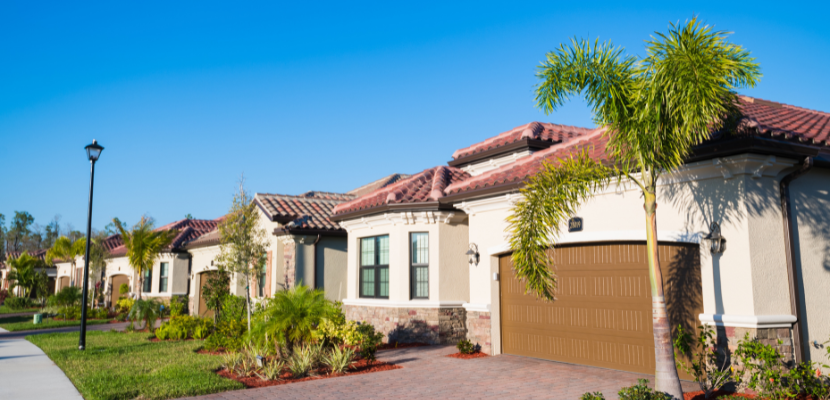
Americans buying in Europe
Americans are flooding to Europe for many good reasons. The history, lifestyle, the accessibility - 26 European countries could fit into Alaska alone! – and that is before we get into the motivations for leaving the US.
Last year the highest ever number of US citizens applied for UK citizenship. That’s 6,100 putting down roots over here. In France, over 13,000 Americans received their first residency cards and they are dominating high-end property deals.
Home purchases from Americans in Spain have increased by 13%, according to the Notaries, whilst anecdotally there’s been an uptick in movers to Portugal and Italy too. We recently reported on new American interest in the Algarve on the back of new flights to Faro, along with other new air routes helping US travellers.
Donald Trump’s re-election – along with issues such as gun crime, healthcare and now tariffs - has certainly made a fair few Americans consider a new home in Europe. The US dollar has been high against both the pound and the euro until the tariffs – giving Americans great buying power over the past couple of years.
The prize is clearly worth it, but this is a heads up that buying a home in Europe is different: and you will be faced with a baffling array of buying processes that are different from the US model – and with their own curiosities.
There is no European MLS

The major difference is that Americans are used to crystal-clear transparency in their real estate system. Properties for sale are listed on something called the MLS – multiple listing service – which is a database that handily offers buyers the opportunity to see everything that is on sale, as agents and brokers share information. It is a collaborative system!
In other countries, as one French estate puts it “it’s a jungle” in terms of trying to see everything that is for sale (when also a lot is ‘off-market’) too. European vendors can be super discreet about putting their home on the market – and letting their neighbours know about it.
Buyers have to look on the busiest property portals to find the biggest choice of property listings, and they will probably need to look at two or three, as such portals are not exhaustive – they only list whoever pays to list on them.
Estate agents, lawyers AND notaries

In the UK, the notion of an American having to go into separate estate agents to see what they have on the books gets an instant reply of “y'all gotta be kidding me!” says Howard Thorne of Homes of America Realty Group in Florida – an estate agent that sells to many Britons heading in the opposite direction.
“They cannot get they’re head around the fact that [typically] one estate agency finds a buyer for the seller, who makes an offer, then throw in a solicitor and they have still not signed a contract!”
He says that Americans need also to understand that in other countries the costs of buying are not all – by law - presented beforehand like they are in the US.
In France, the realtor’s fees are included in the advert for a property – but not so in other countries, where it is more typically subject to negotiation, and also estate agents are not licenced or subject to any kind of industry standards – like Realtors with the trademark - Realtor ®.
In many countries like France, Spain and Italy, a public official authenticates legal documents and rubber-stamps the purchase. This is similar to a notary public in the US but real estate attorneys handle more complex legal issues.
Whilst in France and Italy it’s not always commonplace to use a notaire (or notaio) and then your own lawyer, in Spain it is very advisable to use both – the latter to represent your own interests in the deal/ transaction, which is especially important when there is a language barrier.
In the UK they will need to understand the risks of being gazumped or gazundered; in Spain they will need to appreciate that the buying costs are usually over 10% - sometimes three times the level in the United States; transparency can be much less a given.
Longer timeframes

Buying a home generally takes longer in Europe, and that’s not just because many homes are centuries old and thus fraught with potential issues, it’s also about the process (and the role of the notaire mentioned already).
In the United States, the average time for a house sale to close after going under contract is 24.5 days. In many European countries it is nearer three months, and in Greece it can be six months or a year if there are legal complications. Even in the UK, industry backlogs mean around 20 weeks of late.
Ah yes, and that is another thing to beware of: a relaxed attitude to planning regulations – and legalising any extensions or modifications to a property – in parts of southern Europe.
If you buy a property in parts of rural Spain or Greece, for example, you could find that your lawyer will advise you that get the extra storey or lean-to legalised before completing the purchase. And of course legal time means extra expenses. But buying a charming old home with decades of history can be worth a few extra weeks.
In Italy, beware of making too-low an offer, or perhaps other ways of not showing enough respect and consideration for a cherished family-owned property. Take your time, it’s not just a property transaction – that curiosity and open-mindedness that Americans are well known for may just pay big dividends.